In an age where transparency and integrity are paramount, it's crucial for organizations to implement robust whistleblower protection policies. These policies not only safeguard individuals who report misconduct but also foster a culture of accountability and trust within the workplace. By understanding the essential components of a comprehensive whistleblower protection policy, organizations can ensure that employees feel empowered to speak up without the fear of retaliation. So, if you're interested in learning how to develop an effective policy that protects both your employees and your organization's values, read on!
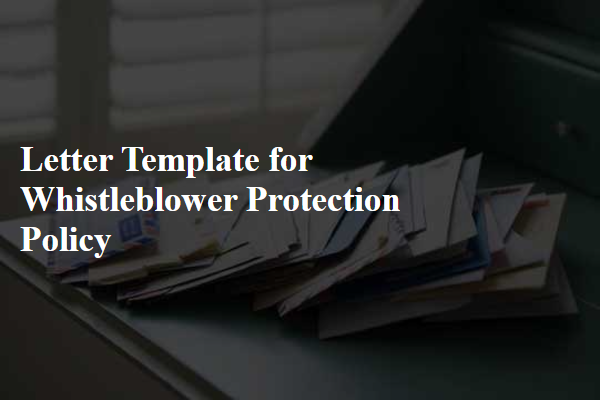
Confidentiality Assurance
Confidentiality assurance is crucial for whistleblowers, providing protection against retaliation when reporting misconduct in organizations. Whistleblower protection policies, such as the Whistleblower Protection Act of 1989 in the United States, ensure anonymity to individuals who disclose information regarding illegal activities or safety violations. Reporting channels, including hotlines or designated officers, must safeguard the identity of whistleblowers to encourage transparency. Organizations must create a culture of trust, ensuring that any shared information remains confidential throughout the investigation process. Failure to maintain confidentiality can discourage future reports, undermining efforts to uphold ethical standards and accountability within the workplace.
Non-retaliation Guarantees
Whistleblower protection policies ensure the safety of individuals reporting misconduct in organizations. Non-retaliation guarantees are critical, offering assurances that whistleblowers will not face adverse consequences, such as job loss or harassment, for their disclosures. In various sectors, including healthcare, finance, and government, these protections encourage transparency and accountability. Organizations, governed by laws such as the Whistleblower Protection Act of 1989 in the United States, must maintain clear protocols. Employees, aware of their rights, can report unethical behavior related to fraud, safety violations, or discrimination without fear. Effective communication channels, like anonymous hotlines or designated compliance officers, help foster a supportive environment for whistleblowers.
Reporting Procedures
Whistleblower protection policies serve as crucial safeguards for individuals who expose wrongdoing or unethical behavior within organizations. Effective reporting procedures outline the steps employees must take to confidentially report concerns, ensuring both anonymity and protection from retaliation. Reporting channels may include dedicated hotlines, secure online submission forms, or direct communication with designated compliance officers. Clear guidelines on what constitutes reportable actions, such as fraud, harassment, or safety violations, are essential for fostering a transparent culture. Regular training sessions can enhance awareness of these procedures, emphasizing the commitment to a safe and ethical workplace environment. Compliance with local laws, such as the Whistleblower Protection Act in the United States, reinforces the organization's dedication to safeguarding whistleblowers.
Legal Compliance
A comprehensive whistleblower protection policy emphasizes the importance of legal compliance in safeguarding individuals who report misconduct within organizations. This policy outlines that employees, contractors, and volunteers can report violations of laws, regulations, or internal policies anonymously and without fear of retaliation. Specific legal frameworks, such as the Whistleblower Protection Act of 1989 in the United States, provide essential protections, allowing whistleblowers to disclose information regarding fraud, waste, abuse, or illegal activities within entities like government agencies and private corporations. Furthermore, organizations should establish clear reporting channels, such as hotlines or designated personnel, to ensure thorough investigation and confidentiality. Regular training on whistleblower rights reinforces a culture of transparency and accountability, fostering an environment where ethical practices are prioritized and protected.
Support Resources
Whistleblower protection policies are crucial in fostering a safe environment for individuals to report unethical or illegal activities within organizations. Support resources such as legal counseling services, confidential hotlines, and employee assistance programs (EAPs) provide essential guidance and support for those who come forward with concerns. Organizations must ensure these resources are easily accessible, with clear processes outlined for reporting grievances related to workplace misconduct, fraud, or violations of federal or state law. For instance, the Office of Special Counsel (OSC) offers protections to whistleblowers within federal sectors, safeguarding them against retaliation. Timeliness in addressing concerns is vital, enabling swift investigations and resolution of reported issues while preserving the anonymity of whistleblowers when needed. Providing such support encourages transparency, accountability, and ethical behavior within the organization.

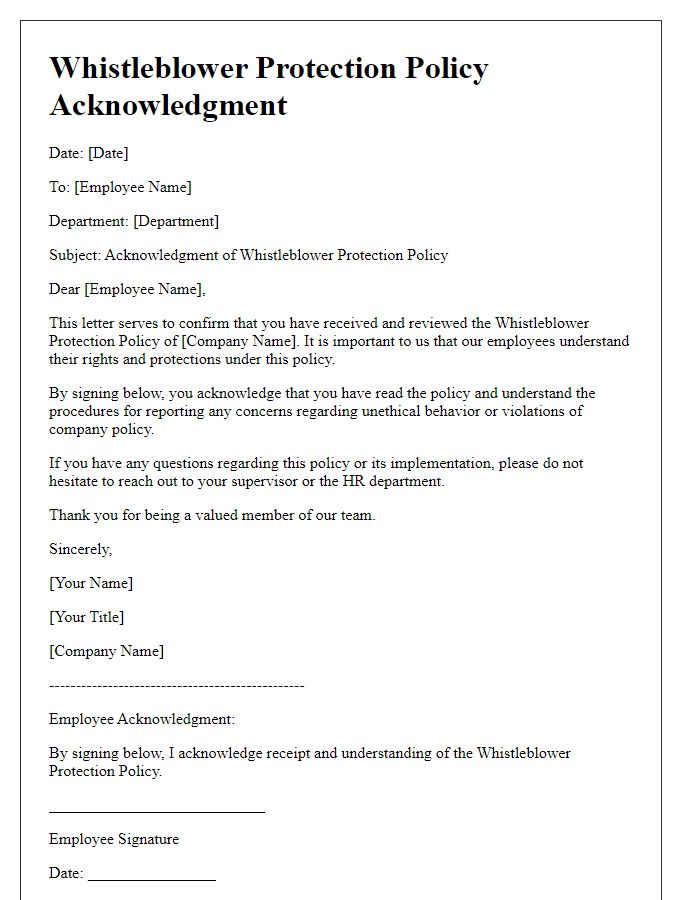
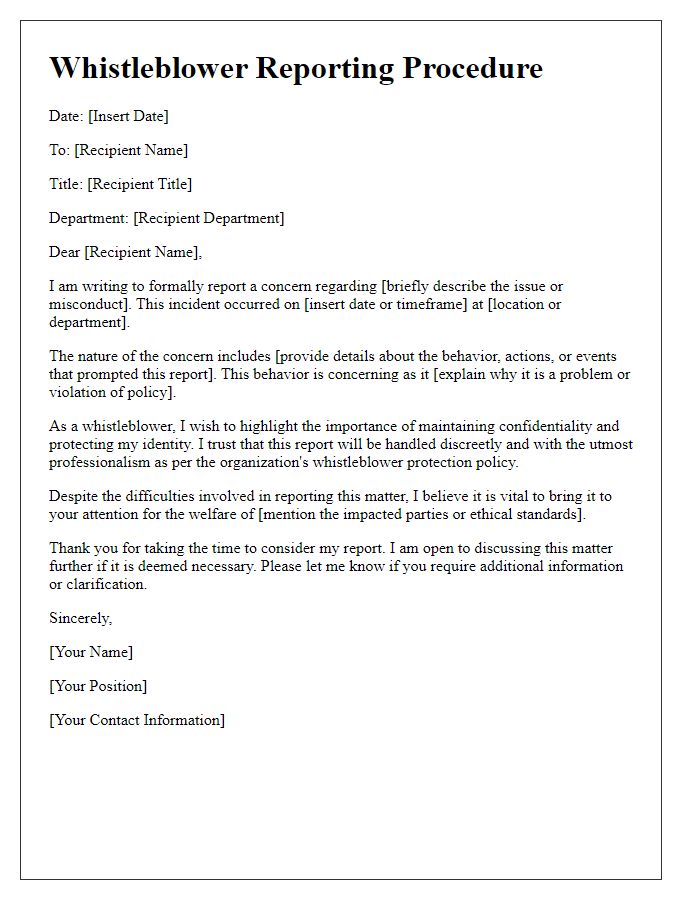
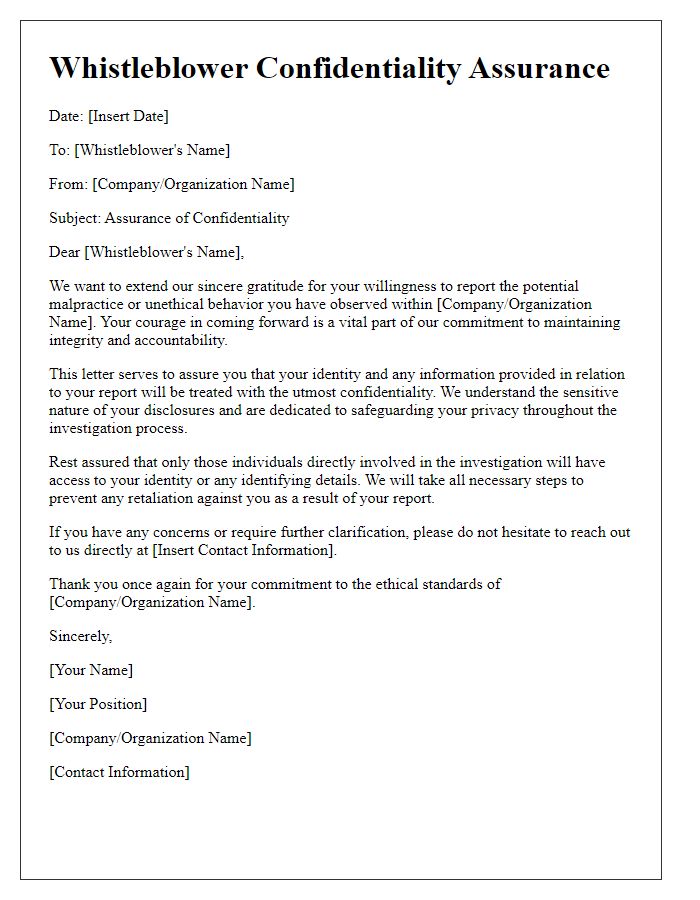
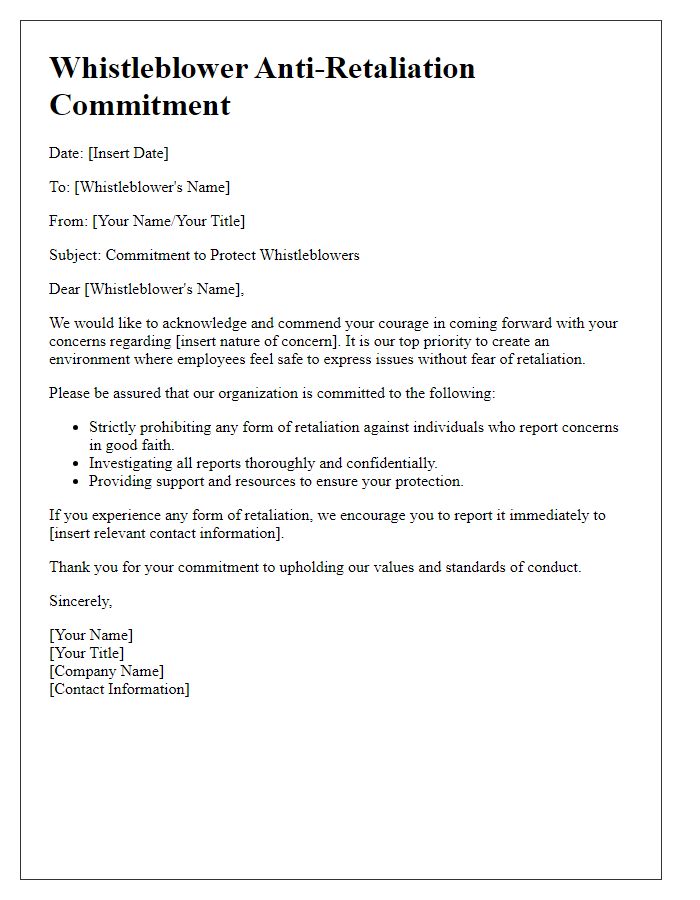
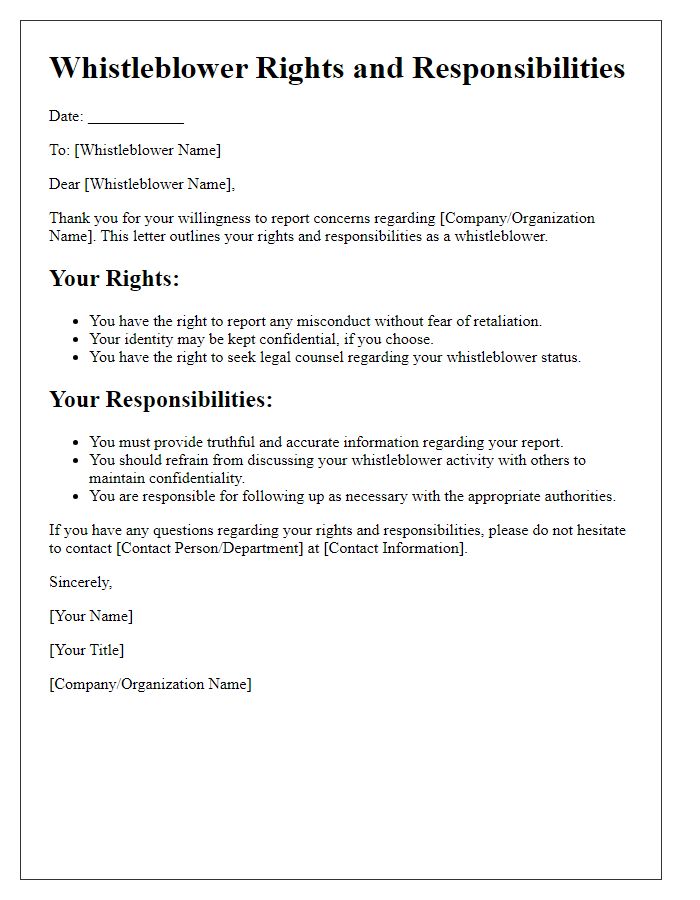
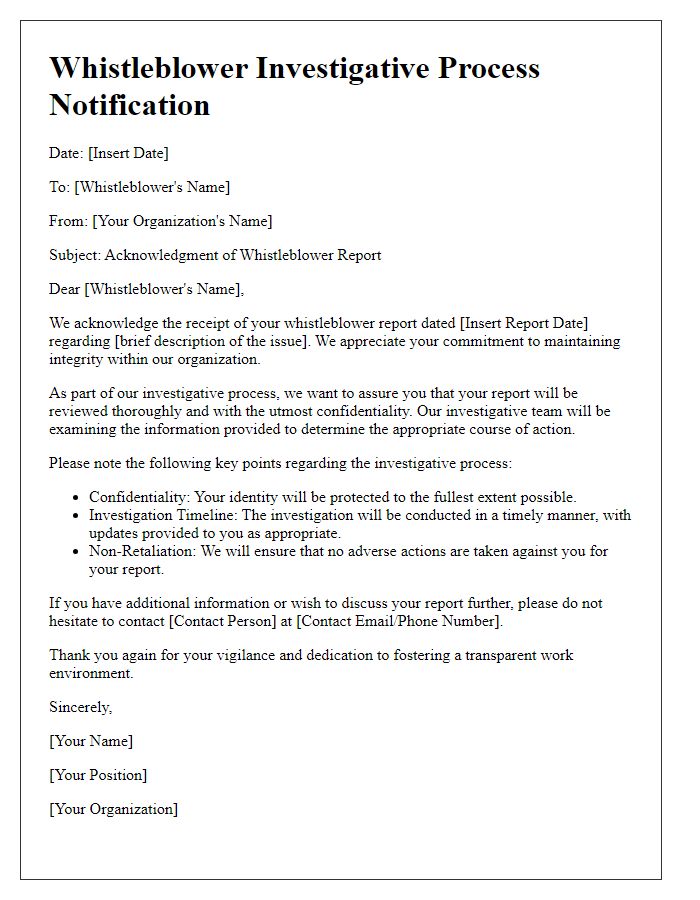
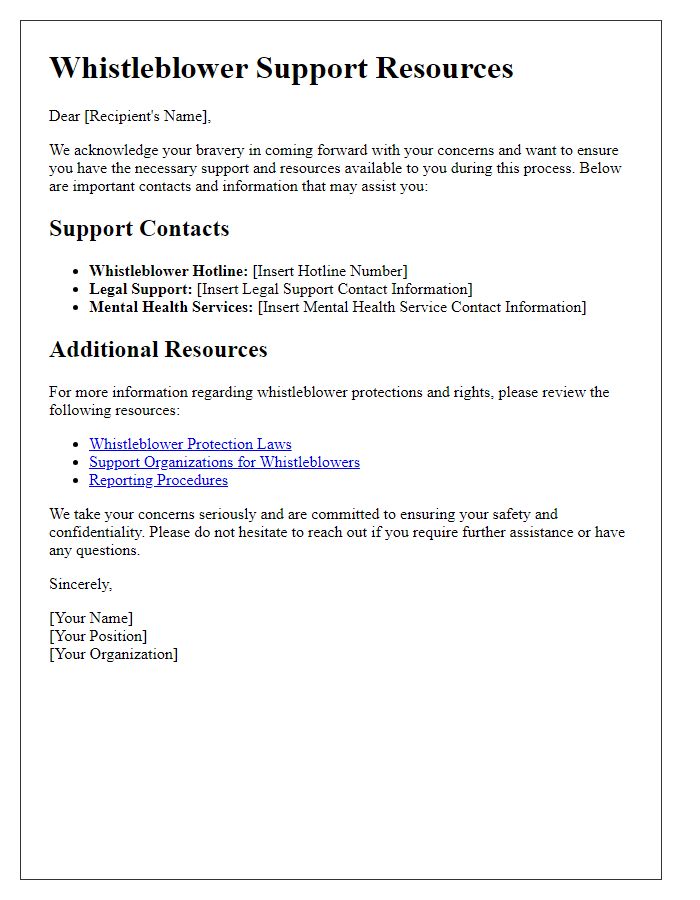
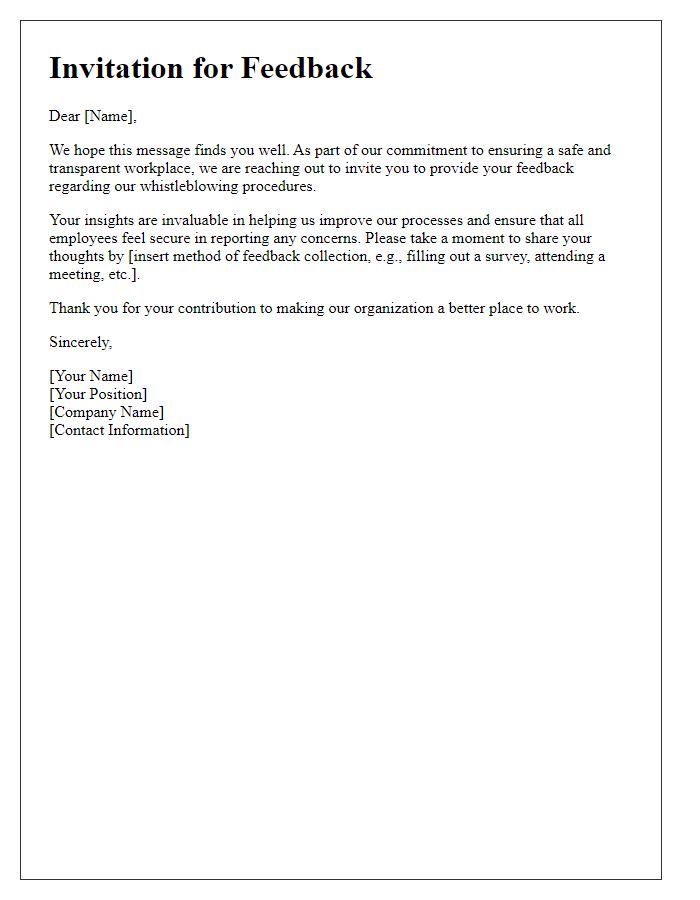
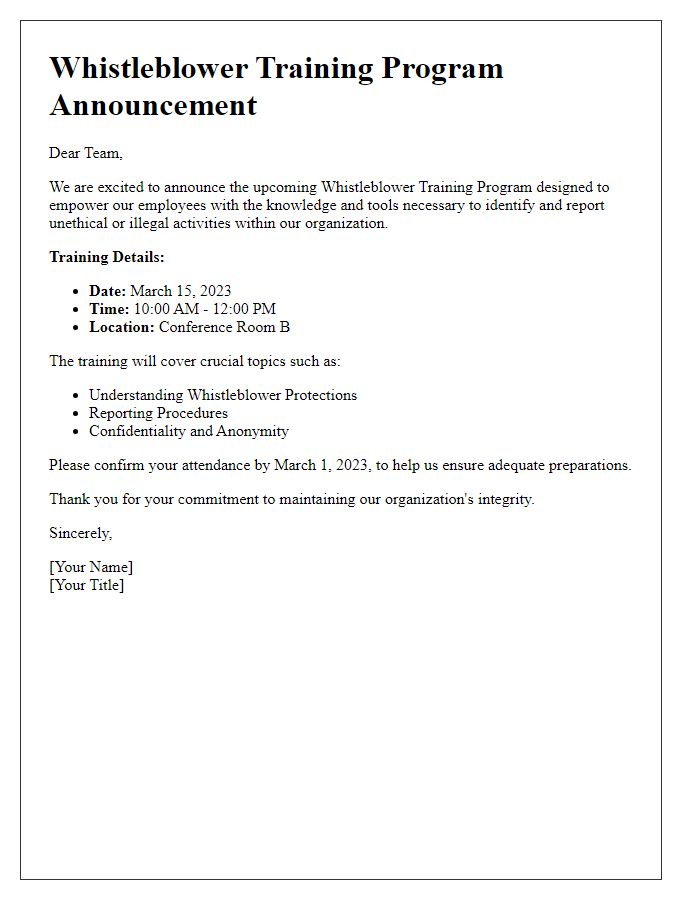
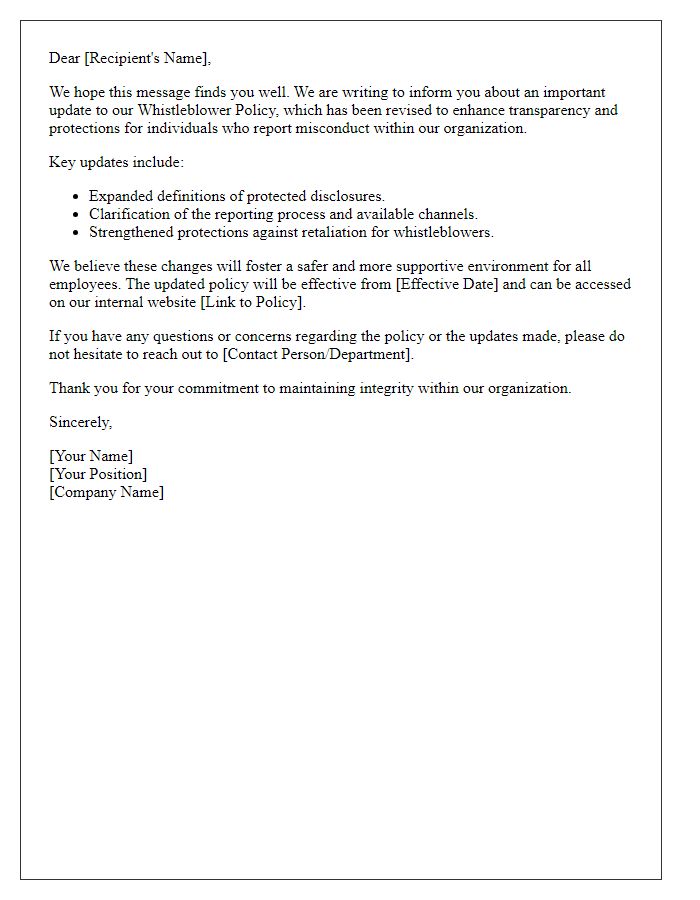

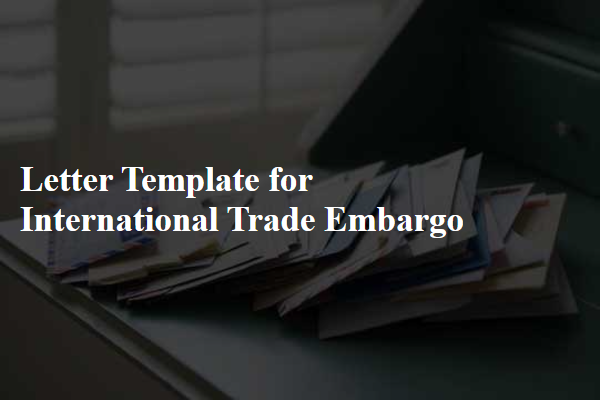
Comments